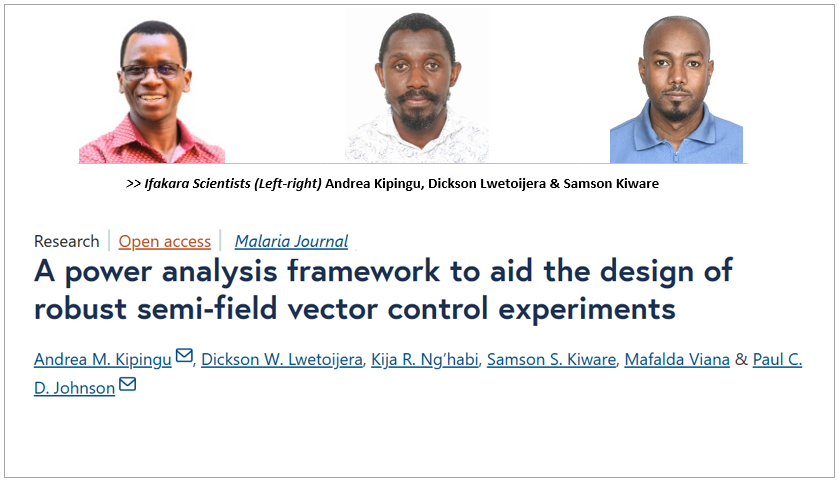
MALARIA CONTROL: Study offers blueprint for better trials in semi-field settings

Researchers from the Ifakara Health Institute, Tanzania and in collaboration with partners at the University of Glasgow, United Kingdom have developed a statistical framework to improve the design of semi-field experiments used to test mosquito control tools before they are deployed in the field.
Published on Malaria Journal, the study emphasizes the importance of power analysis – which empowers researchers to ensure that only designs with adequate statistical power are adopted – ultimately making results from these trials more reliable.
Why design matters in mosquito trials
Semi-field experiments are a critical step in evaluating vector control tools (VCTs), such as insecticide-treated nets or novel methods like pyriproxyfen autodissemination. However, poorly designed experiments can produce inconclusive or misleading results.
To address this challenge, the research team developed and tested a framework that guides scientists in choosing the optimal number of test chambers, mosquitoes, and sampling schedules – factors essential for producing robust and reliable data.
“Determining the most efficient experimental design for a semi-field experiment will depend on a balance of design choices and resource constraints. The power analysis framework and tutorial provided in our study can aid in the robust design of these widely used experiments and ultimately facilitate the development of new VCT,” note the authors.
Power analysis reveals designs that really matters
Using simulated data from generalized linear mixed-effects models, the researchers evaluated different experimental setups, including short-term (24 hours) and long-term (three-month) trials, as well as single and combined interventions.
Their findings revealed that the number of chambers and the consistency between them were the most important factors for ensuring statistical power. High variability among chambers reduced the reliability of the outcomes, underscoring the need for standardization or variable rotation.
The study also found that combining interventions requires additional resources—particularly more chambers—while trial duration had a relatively smaller effect on power.
Better designs could fast-track malaria control tools
By enabling more efficient and accurate early-stage testing, the new framework aims to help researchers make smart design choices that balance resource constraints and scientific accuracy. Ultimately, these improvements could accelerate the development and deployment of effective malaria interventions.
Study led by Ifakara, Glasgow University scientists
The study was designed and led by Ifakara scientists Andrea Kipingu, Dickson Lwetoijera, and Samson Kiware, in collaboration with Mafalda Viana and Paul Johnson from the University of Glasgow. Kija Ng'habi from St. Francis University College of Health and Allied Sciences also contributed by providing data for parameter estimation.
Read more here.
